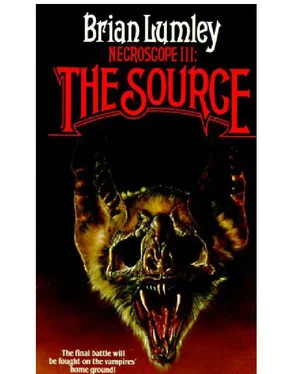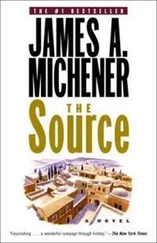Jazz had attended a private school since before he was five and his special subject, requiring private tuition as well as his father's constant guidance, was of course Russian. By the time he was twelve it was obvious that he had a linguist's grasp of the language, which proved to be the case when he obtained almost 100 per cent marks in a specially set examination. He attended university and at seventeen held a first in Russian; by the time he was twenty he'd added to this a second in Mathematics, a subject towards which his brilliantly clear mind had always leaned. Only a year later his mother died from leukaemia; uninterested in an academic career, he took a job as an industrial interpreter/translator. After that all of his spare time was spent in winter sports, which he would pursue world-wide wherever the climate and whenever the financial situation permitted. There were several girlfriends, none of them serious affairs.
Then, holidaying in the Harz when he was twenty-three. Jazz had met a British Army Major on a Winter Warfare course. This new friend was a member of the Intelligence Corps serving in BAOR and the meeting proved to be a big turning point. A year later Jazz was in Berlin as an NCO of that same low-profile corps. But Berlin and BRIXMIS hadn't suited him, and by then the Secret Service had its eye on him anyway and didn't want him over-exposed; he was field agent material and should now start to learn the real tricks of the trade. His demobilization was arranged, as would be the next six years of his life, all greatly to Michael J. Simmons's satisfaction.
From then on it had been training, and training, and more training. He trained in surveillance, close protection, escape and evasion, winter warfare, survival, weapons handling (up to marksman), demolition and unarmed combat. The only thing they couldn't give him was experience…
Jazz had been all set to fly to Moscow as a 'diplomatic interpreter' when Pill came up, or 'went down' as the CIA had it. His original task was reassigned (it had in any case been little more than a training exercise) and he was given Operation Pill. The Service had been setting it up ever since the Soviets got the Perchorsk Projekt underway, and 'local services' were all well established and in full working order. Jazz was briefed from head to heels, went out to Moscow 2nd Class as Henry Parsons, an ordinary tourist, got issued with his Russian ID within an hour of de-planing. An intelligence agent already in the USSR would assume his Parsons identity (along with his passport, etc.) and use his return flight back to London. 'One in, one out, and shake it all about!' as Jazz's Chief Briefing Officer had explained. 'Like the hokey-cokey except there are no left feet, only right ones.'
Jazz hadn't known much about the Moscow end of the network; he'd been deliberately kept in the dark on that, just in case. Ditto for the Magnitogorsk set-up, which had a line on shipments by rail destined for the Perchorsk Projekt. He hadn't quite been able to figure out why his DO should feel peeved that he didn't know more about these things. That was definitely the impression that came over: that even though he'd given as much detail as he could, still the DO would have liked him to have known more. But the simple fact was that all of that stuff had been on a need-to-know basis, and Jazz hadn't needed to know.
As for 'local services': he'd known all about them! And during the many debriefing sessions, Jazz had told everything.
Back in the 1950s Khrushchev had broken up a politically suspect pocket of Ukrainian Jewish peasants and 'resettled' them from an area near Kiev to the eastern slopes and valleys of the upper Urals. Maybe he'd hoped the cold would kill them off. There they'd been allocated land and a work quota. The business: logging, and in winter trapping, all generally to be carried out under the supervision and guidance of old-guard 'Komsomol' officials from the West Siberian oil and natural gas fields. It wasn't quite a forced labour camp, but in the beginning it wasn't a hell of a lot better.
But the Ukrainian dissidents were a funny lot; they stuck it out, filled their quotas, made a going concern of it and actually settled the district. Their success, coupled with the rapid expansion of the far more important oil and natural gas industries in the east, made strict control of the Jewish settlements unwieldy, even unnecessary. Their overseers had better things to do. It could plainly be seen how a previously untamed region was now productive of timber and skins, making good use of natural assets and giving work to the people; Khrushchev's ploy had apparently worked, making good conscientious Russian citizens from what had been an idle pack of troublesome political pariahs. He should have been so lucky in other fields! Anyway, visits from controlling officialdom fell off in direct proportion to the scheme's success.
In fact, all the Jews had wanted was a little peace to follow their own whims and ways of life. The climate might change but they never would. There in their logging camps at the foot of the mountains they were now more or less content. At least they were not pestered and there was always more than enough left over to make the living good. Hard but good. They had all the timber they needed to build with in the summers and burn through the winters, meat aplenty, all the vegetables they could grow for themselves, even a growing fund of roubles from forbidden trading in furs. There was a little gold in the streams, for which they prospected and panned, occasionally with some success; the hunting and fishing were good, flexible work rosters ensured a fair distribution of labour, and everyone had a share in what was available of 'prosperity' and the good things of life. Even the cold worked in their favour: it kept busybodies out and interference to a minimum.
Several of the settlers were of Romanian stock with strong family ties in the Old Country. Their political views were not in accord with Mother Russia's. Nor would they ever be — not until all oppression was removed and people could work and worship in their own way, and restrictions lifted so that they might emigrate at will. They were Jews and they were Ukrainians who thought of themselves as Romanians, and given freedom of choice they might also have been Russians. But mainly they were people of the world and belonged to no one but themselves. Their children were brought up with the same beliefs and aspirations.
In short, while many of the resettled families were simple peasants of no distinct political persuasion, there were a good many in the new villages and camps who were anti-Communist and budding, even active fifth-columnists. They clung to their Romanian links and contacts, and similar groups in Romania had well-established links with the West.
Mikhail Simonov — fully documented as a city-bred hothead and troublemaker, who'd been given the choice of becoming a pioneering Komsomol, or else — had gone to just such a family, the Kirescus of Yelizinka village, for employment as a lumberjack. Only old man Kazimir Kirescu himself, and his oldest son, Yuri, knew Jazz's real purpose there at the foot of the Urals, and they covered for him to give him as much free time as possible. He was 'prospecting' or 'hunting' or 'fishing' — but Kazimir and Yuri had known that in actual fact he was spying. And they'd also known what he was after, his mission: to discover the secret of the experimental military base down in the heart of the Perchorsk ravine.
'You're not only risking your neck, you're wasting your time,' the old man had told Jazz gruffly one night shortly after he took up lodgings with the Kirescus. Jazz remembered that night well; Anna Kirescu and her daughter Tassi had gone off to a women's meeting in the village, and Yuri's younger brother Kaspar was in bed asleep. It had been a good time for their first important talk.
Читать дальше












